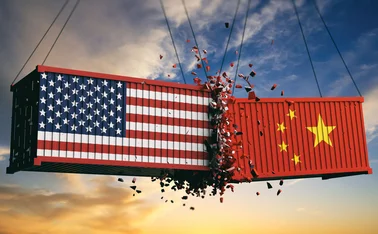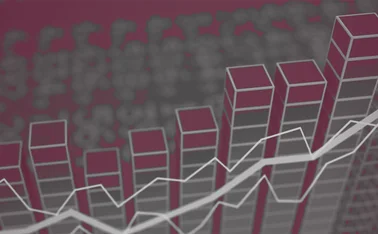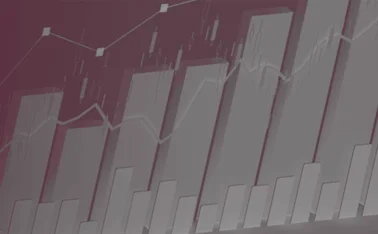
Friend or foe?


European Union–China relations must be seen in a global and bilateral context. The relationship is primarily economic, but involves a growing number of facets. In any case, there has been a change in both entities in recent years. The EU has become more assertive in looking after its own interests, and China is deliberately playing a more important geopolitical role.
Dialogue remains the only approach to settling disputes and developing relationships. Both the EU and China want to maintain the multilateral framework – not only in words but also in actions – and both are strongly committed to the most important issue facing mankind: climate change.

The EU–China ‘comprehensive strategic partnership’ is more important than ever. EU–China relations are mature, complex and highly diversified. The EU is China’s biggest trading partner and China is the EU’s second largest. The trade in goods between China and the EU is worth in excess of €1.7 billion (US$1.85 billion) daily. Of course, the trade war with the US has affected China–EU relations economically and politically. It has resulted in a sharp slowdown in economic growth – particularly in Germany. The US policy is interpreted by China as a geopolitical move, but it is also motivated by US domestic politics and certain portions of the American working classes who are dissatisfied with the effects of globalisation.
If it was only geopolitical manoeuvring, why were tariffs imposed on European steel and aluminium, and why is the European automotive sector also threatened? It is clear there is unrest in the EU with China’s approach to trade and investment. The US and the EU face the same problems in China, but the EU’s approach to solving the problems differs from that of the US. The latest EU–China summit in April 2019 promised to solve these problems. The key words to emerge from the meeting were ‘openness’, ‘non-discrimination’ and ‘reciprocity’. The first steps have been taken recently: for example, on protection of geographical indications – the first ever EU–China trade agreement – and the signing of two aviation accords. But overall progress has been slower than hoped.
In September 2020, there will be a summit in Leipzig between President Xi Jinping and the entire European Council, where there will be an obligation to deliver. A real game-changer would be finalising negotiations on a comprehensive agreement on investment. But we are not there yet. Hopefully, a breakthrough will occur in negotiations between the US and China, thus averting a recession.
The EU flexes its muscles
In the EU – certainly among the larger countries and in European institutions – greater assertiveness has grown to push free and fair trade. This translates to the adoption of new instruments to combat dumping and to safeguard the interests of the EU and its member states in the strategic sectors of security and public order. This shows a clear will to defend European sovereignty, which is why the EU is also taking action against the malpractices of the ‘big four’ tech companies – Google, Amazon, Facebook and Apple. This is why EU countries want to be less dependent on Russian oil and gas, and why the EU wants to further internationalise the euro – the second-largest currency worldwide, with 35% of all payments – to be less dependent on the US dollar. For the same reason, the EU wants to strengthen the European pillar of the Nato military alliance and ensure its security in cyber space and telecommunications by striving for more technological sovereignty.
Opting for more sources of renewable energy will make Europe less energy-dependent on other countries and therefore more sovereign. We want Europe to become the first climate-neutral continent by 2050.
At the same time, the EU remains a strong defender of the multilateral order and is working with China to reform the World Trade Organization (WTO) and keep it functioning. For its part, China has manifested itself as a geopolitical actor along the Belt and Road Initiative (BRI) on all continents, including Europe. The EU has no objection to the BRI, but it requires respect for European legislation and transparency in the procedures for awarding contracts.
China’s actions have led to new initiatives in Africa favouring investment from the EU, as well as from Japan and the US. This can only benefit the economic development of Africa, where the EU has been present for decades through its official development assistance, especially in soft sectors such as health and education, accounting for more than half of all aid to Africa.
The EU resolutely rejects protectionism. Recent proof of this is the free-trade agreement concluded with Japan and the political agreement on a free-trade agreement with the Mercosur countries – Argentina, Brazil, Paraguay and Uruguay. China is also promoting an Asian pact that includes the Association of Southeast Asian Nations and Australia, Japan, New Zealand and the Republic of Korea – the Regional Comprehensive Economic Partnership.
The EU’s general approach towards connectivity, outlined in in 2018 in the EU connectivity strategy, relies on adherence to market rules, EU and international requirements and standards, and a level playing field to deliver benefits for all parties concerned and in all the countries along the planned routes.
The EU wants to promote and defend its ideals and interests at global level, while respecting the sovereignty of nations and multilateralism. It regards the latter as a guarantee of peace. The EU also wants to further deepen its unity. The 27 member states of the EU speak with one voice in the negotiations setting out its new relationship with the UK following Brexit, in the trade talks with the US and in the negotiations for an investment agreement with China. This unity was also seen at the 21st Conference of the Parties of the UN Framework Convention on Climate Change in Paris in December 2015 when adopting the Paris Agreement on climate change, and in the nuclear deal with Iran – known as the Joint Comprehensive Plan of Action (JCPOA). In both cases, China and the EU have remained true to their word.
Major responsibilities for China and the EU
On the subject of unity: leaving the EU is not the wish of the overwhelming majority of citizens of the EU. Support for EU membership is now at its highest in 27 years, and European voters turned out in record numbers in May 2019’s European Parliament elections. The Brexit process is still unclear – particularly on the extent to which, or even if, post-Brexit the UK will move away from the European single market.
The relationship between global actors is characterised too much by distrust – which can sometimes run very deep. To counter this, China and the EU must deliver on their announced promises over this year, which is why the Leipzig summit will be so important.
In this spirit, the EU engaged with China in a very successful summit in Brussels in April 2019. China assumed its responsibilities in securing a more balanced relationship, with greater reciprocity, non-discrimination and openness of its system, while upholding a rules-based multilateral trading system. China agreed to address industrial subsidies as part of the WTO reforms and to open up more systematically its economy to foreign investment.
No bilateral contact or regional initiative, such as the Cooperation between China and Central and Eastern European Countries initiative – known as ‘17+1’ – can replace an agreement with the EU as a whole; it could even be counterproductive. It also represents a choice between the short and long terms.
Strengthening mutual trust is essential in the uncertain and sometimes confusing times we live in. This will not prevent each global actor from upholding its own values internally and externally. The global community has a number of essential values in common – such as peace, prosperity for all and combating climate change – but it does not share all values. They are also summarised in the UN’s 2030 Sustainable Development Goals. China and the EU have a major responsibility in this regard.
For the EU, China simultaneously plays different roles in different policy areas:
- A co-operative partner in, for example, addressing climate change, and implementing the Paris Agreement, the JCPOA and certain dimensions of connectivity
- A negotiating partner with whom the EU must find a balance of interests with – for example, in investment agreement, migration and visa facilitation and certain dimensions of connectivity
- An economic competitor in the pursuit of technological leadership in fast-moving high-tech sectors such as robotics and electric vehicles
- And a systemic rival promoting alternative models of governance. The ‘systemic rival’ label reflects no hostility; it is a simple statement of fact.
While recognising these areas of difference, the EU wishes to deepen its engagement with China to promote common interests at a global level.
Only users who have a paid subscription or are part of a corporate subscription are able to print or copy content.
To access these options, along with all other subscription benefits, please contact info@centralbanking.com or view our subscription options here: http://subscriptions.centralbanking.com/subscribe
You are currently unable to print this content. Please contact info@centralbanking.com to find out more.
You are currently unable to copy this content. Please contact info@centralbanking.com to find out more.
Copyright Infopro Digital Limited. All rights reserved.
As outlined in our terms and conditions, https://www.infopro-digital.com/terms-and-conditions/subscriptions/ (point 2.4), printing is limited to a single copy.
If you would like to purchase additional rights please email info@centralbanking.com
Copyright Infopro Digital Limited. All rights reserved.
You may share this content using our article tools. As outlined in our terms and conditions, https://www.infopro-digital.com/terms-and-conditions/subscriptions/ (clause 2.4), an Authorised User may only make one copy of the materials for their own personal use. You must also comply with the restrictions in clause 2.5.
If you would like to purchase additional rights please email info@centralbanking.com







